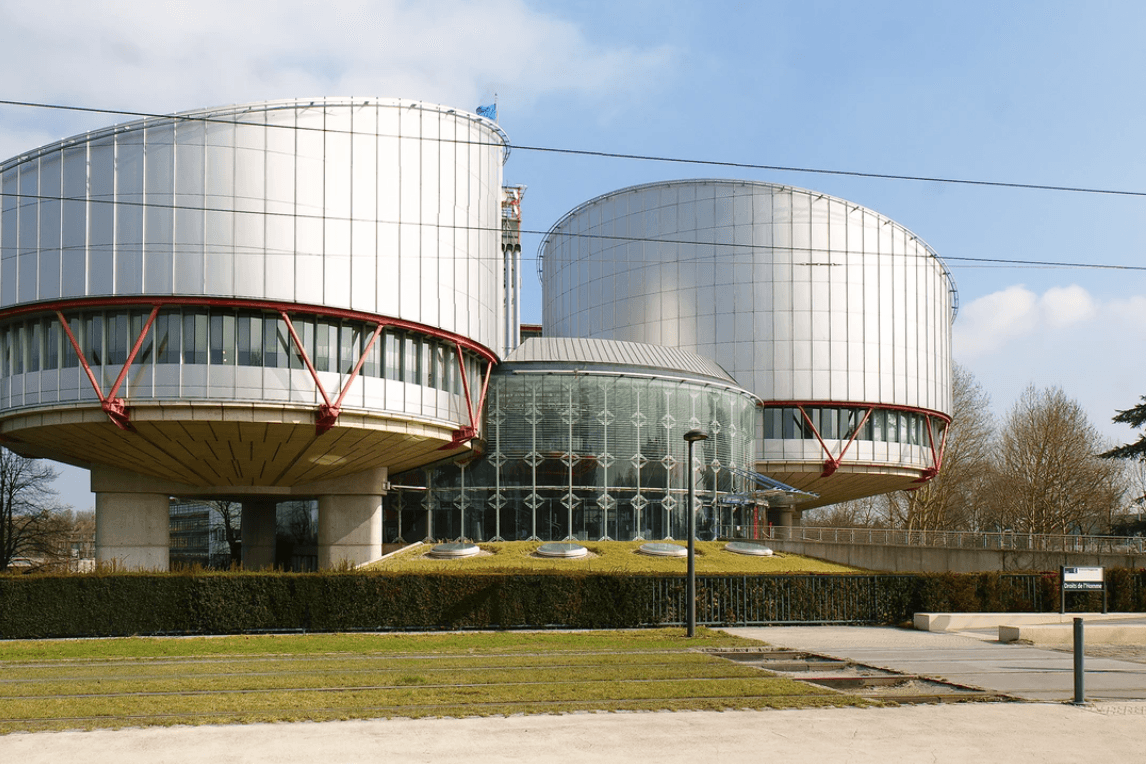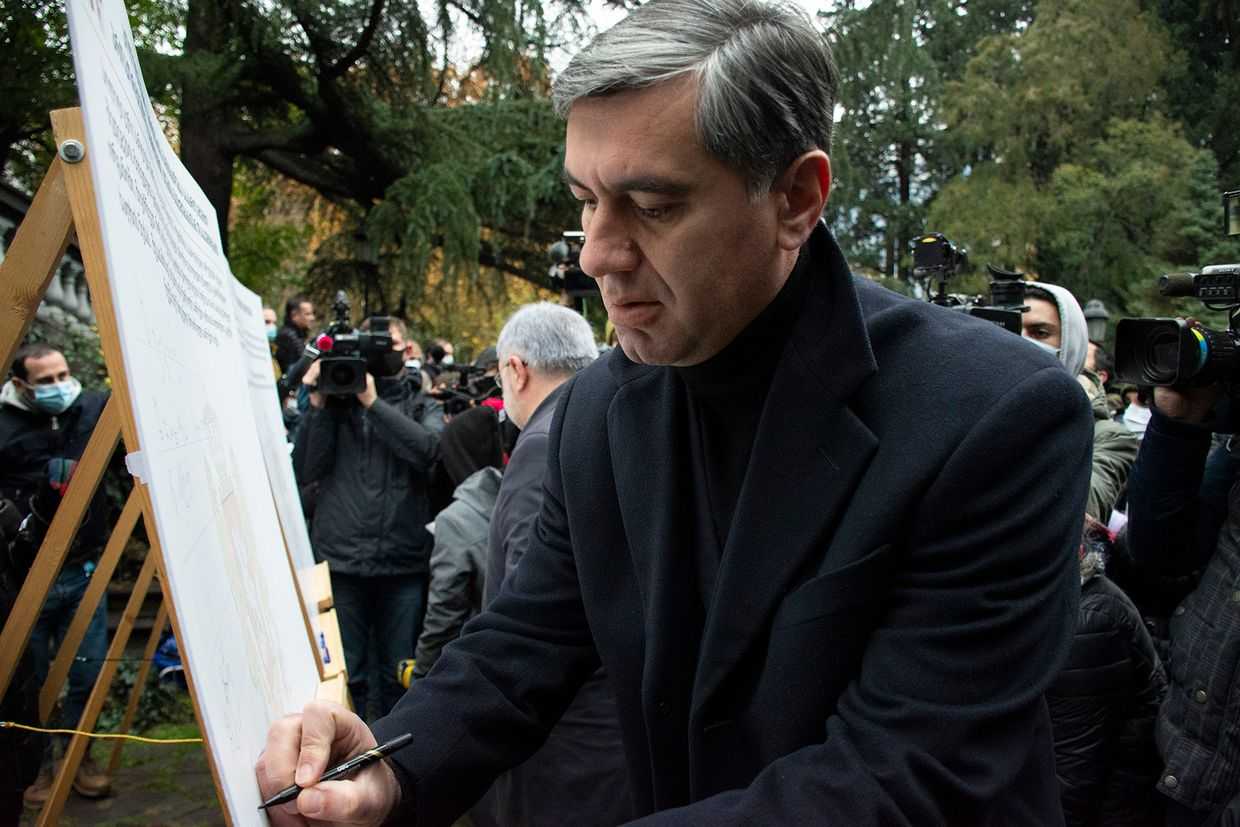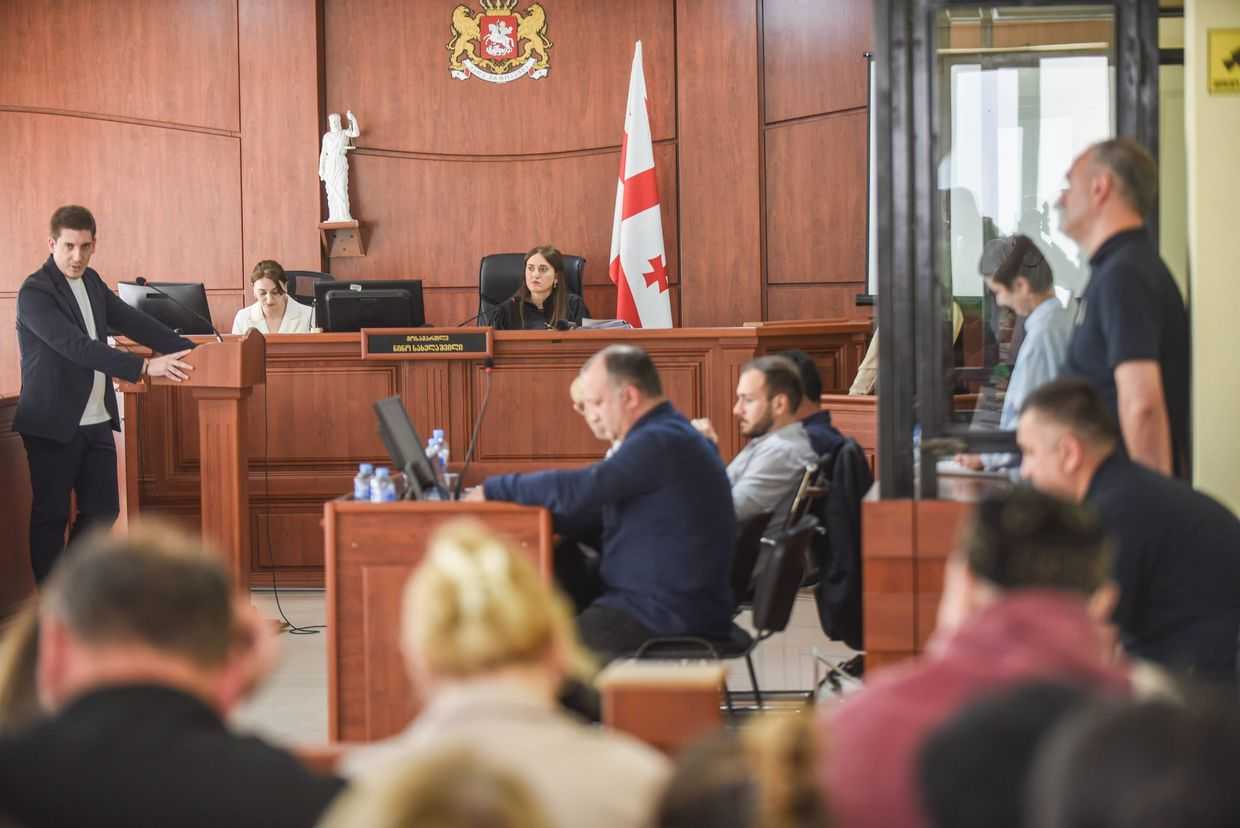
The European Court of Human Rights (ECHR) has found that Georgian authorities violated the rights of two Georgian activists, including their freedoms of assembly and association, during protests in November 2020.
In their ruling on Tuesday, the court ordered the government to pay Nodar Rukhadze €2,129 and Giorgi Mzhavanadze €1,200 ($1,400) in compensation.
The case concerned the administrative detention of the two near parliament on 9 November 2020 following parliamentary elections. Both were part of the Shame Movement — a youth-led anti-government group formed in 2019.
That night, activists tried to bring firewood to the site of the protest, but the police intervened. Four people in total were taken to custody. They were charged with petty hooliganism and disobeying police.
At a hearing a few days later, the Tbilisi City Court did not find Mzhavanadze and Rukhadze guilty of petty hooliganism, but did convict them on the second charge. As a result, the former was sentenced to three days in detention, while the latter received a ₾1,500 ($555) fine.
The court found that Georgian authorities violated the right to freedom of assembly and association of both applicants, as their alleged conduct was not ‘of such a nature and degree’ as to remove their participation in the demonstration.
They also ruled that Rukhadze’s right to a fair trial had been violated as ‘he was effectively put in a position of having to prove his innocence’. They dismissed a similar claim from Mzhavanadze.
They concluded that ‘the only item of direct evidence against [Rukhadze] was a witness statement by a police officer who represented the accusing party’.
The ECHR also emphasised that it happened in circumstances where ‘additional evidence such as video footage depicting the disputed events could, or should, have been captured by the officer’s body‑worn camera and produced in court’.
Eduard Marikashvili, the lawyer representing the activists, hailed the ruling, particularly in relation to the circumstances that often accompany the detention of protesters in Georgia.
‘I believed that the truth I tirelessly repeated within the deaf walls of the [Georgian] court would one day be met with a positive response — that someone would finally say: yes, it’s true, people should not be convicted solely on a police officer’s testimony, especially when the officer had the opportunity to activate a body camera and produce neutral evidence’, he wrote on Facebook.
Earlier, in May, the ECHR also delivered a ruling in the case of another Shame Movement member, Aleksi Machavariani, who was also arrested during a protest on 9 November 2020.
At the time, the ECHR found a violation of article 5 of the convention, the right to liberty. The ECHR concluded that there had not been a violation of the right to a fair trial in Machavariani’s case.









